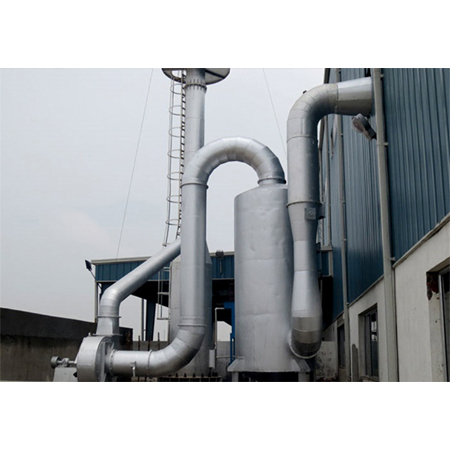
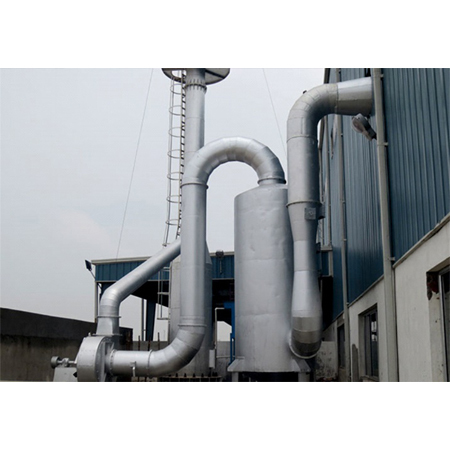
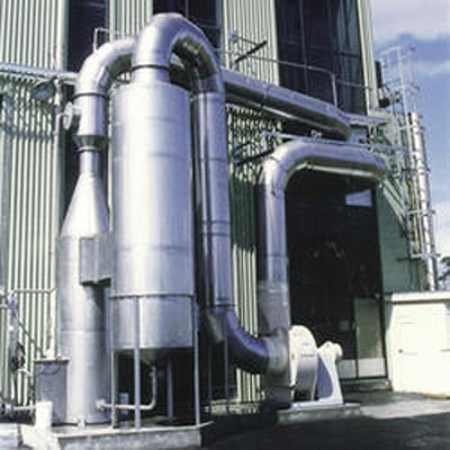
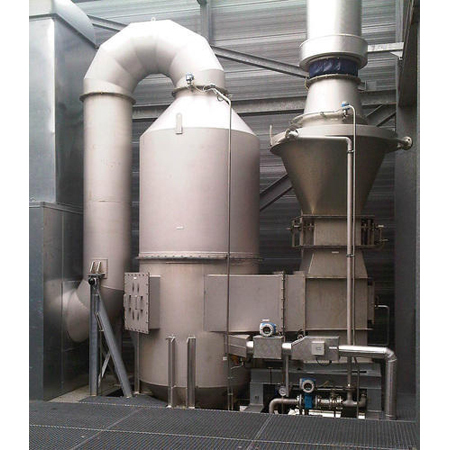
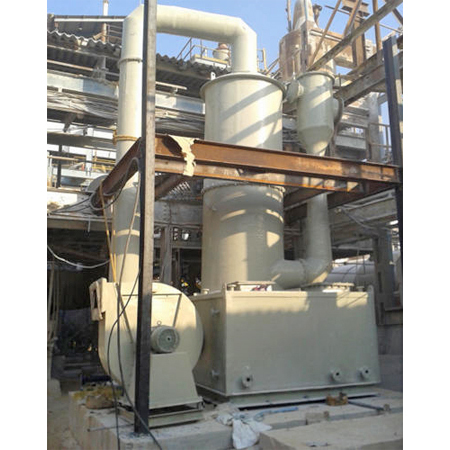
Gas Scrubber System
100000 INR/Unit
Product Details:
- Material Metal
- Cooling System Air Cooling
- Voltage .7-2.8 MW Watt (w)
- Dimension (L*W*H) 600*5200 Millimeter (mm)
- Click to view more
X
Gas Scrubber System Price And Quantity
- 100000.00 - 1000000.00 INR/Unit
- 100000 INR/Unit
- 1 Unit
Gas Scrubber System Product Specifications
- .7-2.8 MW Watt (w)
- Air Cooling
- Metal
- 600*5200 Millimeter (mm)
Gas Scrubber System Trade Information
- JNPT Port
- Letter of Credit (L/C), Letter of Credit at Sight (Sight L/C), Telegraphic Transfer (T/T), Cheque
- 10 Unit Per Month
- 4 Week
- Australia, North America, Eastern Europe, Middle East, Africa, Central America, South America, Western Europe, Asia
- All India
Product Description
With the extensive knowledge and experience in this respective industry we are engaged in offering excellent quality Gas Scrubber System. The given scrubber system is used for process air cleansing and dust collection. This scrubbers system is available in various specifications as per the need of our customers. The given scrubbers system used to remove particles from a gas in chemical processing plants. Low power consumption, precisely engineered, high efficiency and long service life are qualities of offered product.
Gas Scrubber System Applications:
Air Pollution Control: Gas scrubbers are extensively used in industries to control air pollution by removing harmful pollutants such as sulfur dioxide (SO2), nitrogen oxides (NOx), volatile organic compounds (VOCs), and particulate matter (PM).
Chemical Processing: In chemical manufacturing plants, gas scrubbers are employed to remove toxic or corrosive gases generated during chemical reactions. They help in maintaining a safe working environment and preventing atmospheric pollution.
Oil and Gas Industry: Gas scrubbers are utilized in the oil and gas industry to remove contaminants like hydrogen sulfide (H2S) and carbon dioxide (CO2) from natural gas streams. This ensures compliance with environmental regulations and enhances the quality of the extracted gas.
Wastewater Treatment: Gas scrubbers play a vital role in wastewater treatment plants by removing foul odors and harmful gases such as hydrogen sulfide (H2S) and ammonia (NH3) emitted during the treatment process.
Semiconductor Manufacturing: In semiconductor fabrication facilities, gas scrubbers are used to remove hazardous gases used in the manufacturing process, such as ammonia (NH3), hydrogen chloride (HCl), and sulfur hexafluoride (SF6).
Power Plants: Gas scrubbers are installed in power plants, especially those using coal or oil as fuel, to control emissions of sulfur dioxide (SO2), nitrogen oxides (NOx), and other pollutants, thereby reducing environmental impact.
Metal Processing: Gas scrubbers are utilized in metal processing industries to remove fumes, particulates, and harmful gases generated during processes such as welding, smelting, and metal finishing.
Food and Beverage Industry: Gas scrubbers are employed in food processing facilities to eliminate odors and remove harmful gases emitted during cooking, baking, or fermentation processes.
Pharmaceutical Manufacturing: Gas scrubbers are used in pharmaceutical plants to control emissions of volatile organic compounds (VOCs) and other hazardous gases generated during drug manufacturing processes.
Pulp and Paper Industry: Gas scrubbers help in reducing emissions of sulfur compounds, chlorine compounds, and particulate matter from pulp and paper manufacturing processes, thus minimizing environmental impact.
Gas Scrubber System FAQ:
What is a gas scrubber system?
A gas scrubber system is a pollution control device used to remove pollutants, contaminants, or unwanted gases from industrial exhaust streams. It typically consists of a scrubbing vessel, a liquid (usually water) for scrubbing, and mechanisms for contacting the gas with the scrubbing liquid.
How does a gas scrubber work?
Gas scrubbers work through a process called absorption, where the target pollutants are dissolved or trapped in the scrubbing liquid. The contaminated gas stream is introduced into the scrubber vessel, where it comes into contact with the scrubbing liquid. The pollutants are then transferred from the gas phase to the liquid phase through physical or chemical interactions, depending on the specific scrubbing technique used.
What are the different types of gas scrubbers?
Gas scrubbers come in various types, including wet scrubbers, dry scrubbers, and semi-dry scrubbers. Wet scrubbers use liquid to remove pollutants, while dry scrubbers use solid materials or chemicals. Semi-dry scrubbers combine elements of both wet and dry scrubbing techniques.
What pollutants can gas scrubbers remove?
Gas scrubbers can remove a wide range of pollutants, including sulfur dioxide (SO2), nitrogen oxides (NOx), volatile organic compounds (VOCs), hydrogen sulfide (H2S), ammonia (NH3), particulate matter (PM), and various other hazardous gases and contaminants.
What industries use gas scrubber systems?
Gas scrubber systems are used in industries such as chemical processing, oil and gas, power generation, wastewater treatment, semiconductor manufacturing, metal processing, food and beverage production, pharmaceuticals, and pulp and paper manufacturing, among others.
What are the benefits of using gas scrubber systems?
The benefits of gas scrubber systems include compliance with environmental regulations, reduction of air pollution and emissions, protection of worker health and safety, mitigation of odors, improvement of product quality, and overall environmental sustainability.
How do you maintain a gas scrubber system?
Maintenance of a gas scrubber system typically involves regular inspection, cleaning, and replacement of components such as scrubbing media, nozzles, pumps, and instrumentation. Proper monitoring of operating parameters such as pressure, flow rate, and pH is also essential for optimal performance.
Are gas scrubber systems cost-effective?
Gas scrubber systems can be cost-effective in the long run, considering the potential savings from reduced environmental fines, improved process efficiency, and enhanced public perception. The cost-effectiveness depends on factors such as the specific application, the type and size of the scrubber system, and the regulatory requirements.
Can gas scrubber systems be customized for specific applications?
Yes, gas scrubber systems can be customized to meet the specific requirements of different industries and applications. This includes selecting the appropriate type of scrubber, designing the system for optimal performance, and integrating additional features such as monitoring and control systems.
What are the environmental benefits of using gas scrubber systems?
Gas scrubber systems help reduce emissions of harmful pollutants into the atmosphere, thereby improving air quality, protecting ecosystems, and minimizing the impact of industrial activities on public health and the environment.
Tell us about your requirement

Price:
Quantity
Select Unit
- 50
- 100
- 200
- 250
- 500
- 1000+
Additional detail
Mobile number
Email
Other Products in 'Air Pollution Control Equipment' category








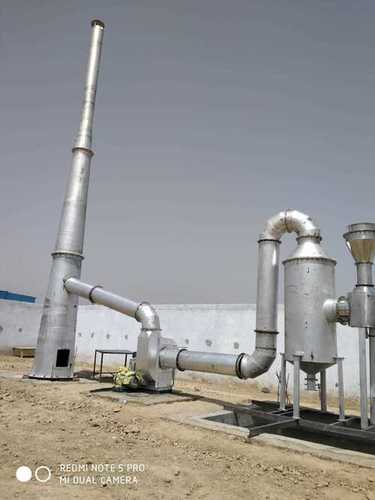

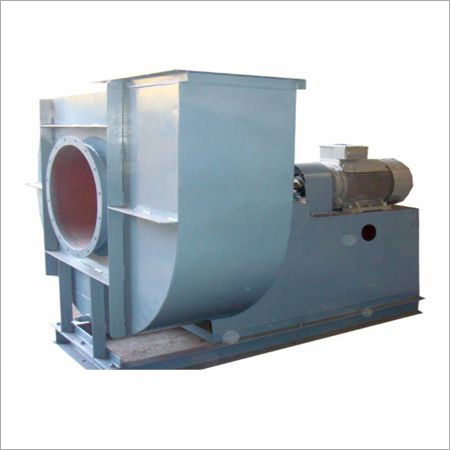
 Send Inquiry
Send Inquiry Send SMS
Send SMS Call Me Free
Call Me Free
